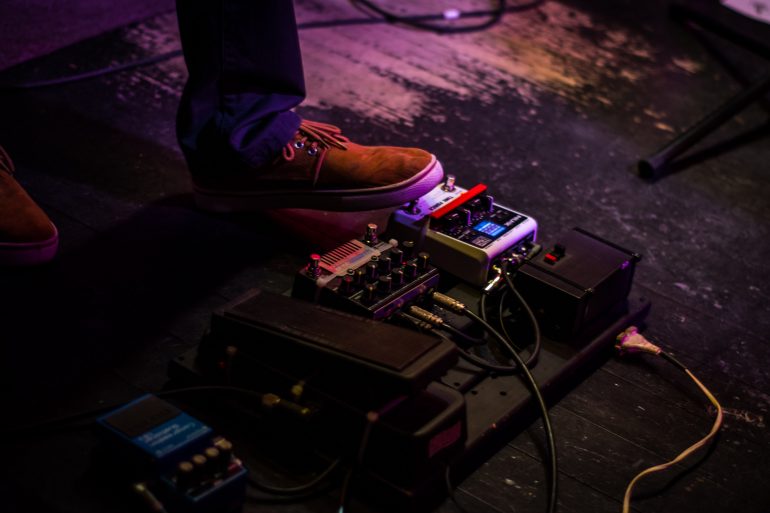So, you’ve landed the gig, promoted it the best you could and finally the big day has arrived. You’re all set to have a great one – the band’s prepped, rehearsals done, the special surprises packed into the songs on your set. As you prepare to set out from home for the venue is where the real work starts. Listing out all the gear you need, packing it all carefully and making sure nothing will get damaged during the journey. You’ve braved the traffic, dealt with the cabbie, the rigmarole of the commute, and you’re ready to relax after reaching the venue. Right? Wrong.
The soundcheck is often the most unappreciated parts of the gig life. Most bands know its importance at some vague intellectual level but use the time given for it to goof around, doing it mostly absent-mindedly or worse, as a practise session. Nothing irks the sound guy more than a band that wastes this time and then complains in the middle of the gig that they can’t hear themselves.
If you want a career in music, this is one ritual you must learn to take seriously because between you and the audience is the equipment that – you must understand – takes time to set up right. So, get with it by using something like a checklist for yourself.
Getting the gear in: Whether or not you have help from the venue, there is a way to do this efficiently, if not painlessly. The fact is no one will treat your gear with more respect than you, and you know best where each part goes. Not only that, leaving the gear unattended in the car or the van is never safe, exposing it to theft.
Load it in, set it up and get this all done before the time appointed for the soundcheck. The more the band delays this, the less time you have for the actual soundcheck. Be known for a good work ethic (which in turn keeps everyone else on their toes).
The tech, the respect: Always treat everyone you’re working with respect. One can’t stress enough on how much we all rely on the crew to make us look and sound good. It doesn’t matter whether the person behind the console is a wizened professional of many years or a fresh-faced looking newbie, your sound is in their hands. Trust them to do their job right and keep it respectful all throughout. Least of all the considerations, but yes, the word get around on whether you are a mature person underneath all the attitude you unleash for the audience, or someone who’s yet to learn how to work well with people.
Bad, bad cables: Get all your cables organised and appreciate how much time it can take to untangle them while everyone else waits. Not just that, if you don’t treat your cables properly, they are more likely to return the favour at the worst possible time. Studies have proved… well never mind the studies, just hope never to learn from experience of a buzz in the sound from that faulty lead, or one that fails you mid-concert. Learn how to wrap your cables properly and help them live longer.
Sharing the backline: If you’re sharing the stage with other bands, it’s likely you will be sharing the backline. Whether it is the drum kit, or the bass amp, you will be end up sharing some of the equipment on stage to ensure quick transitions. Discuss it all beforehand devoid of any display of attitude. Set aside any resentment you’ve had in the past, clear the air and shake hands so you can get together on making it work.
The song remains the same: Over the years, we’ve witnessed some of the greatest acts from India and abroad sticking to the same few songs for their soundchecks. This is an extremely good strategy for everyone involved. The band knows what the song should sound onstage, and that lets you direct the tech on the levels you want very efficiently. Pick the most well-rounded songs from your repertoire, the ones that let the sound tech know what you sound at your highest (to avoid the sound peaking), and the lowest (so that you’re still properly audible). Perform them as you would during any gig and don’t hold back.
Stop noodling around: Allow each other’s instrument to be set up properly before you do your full band soundcheck. Nothing is more annoying than the guitarist fiddling with his instrument absentmindedly while the flautist is trying to get the mic to work right for the tone that she wants. Drummers, take note: you can be some of the most disruptive elements in the soundcheck.
Now, when it’s all done, it’s time to relax. This is as important as what’s gone on before or what’s to come later. Find a quiet corner, close your eyes and get in some time to yourself before you take the stage. It’s crucial to take this break to grab a snack, warm up if you’re a vocalist, check for your extra set of guitar strings, or just stretch and hang back.
Did we get everything you need to get the best soundcheck done? Do share your secrets and insights about this crucial ritual so that the community benefits from them. Use the comments section below.




